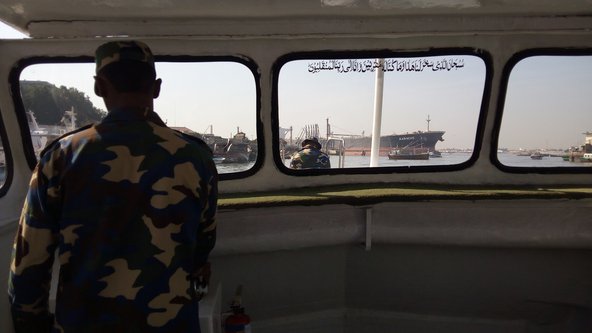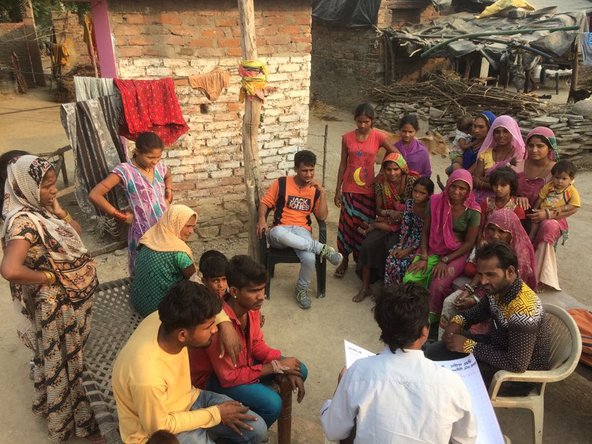How our Sustainable Development Programme works to turn goals into actions
by Sanne Weber
18 Jun 2018
The British Academy’s Sustainable Development Programme has so far funded 16 research teams from across the UK to conduct cutting-edge research into how sustainable development can be made a reality. At a recent conference held by the programme, key lessons learnt by some of these research projects were used to generate broader discussions among a wide audience of academics and policymakers. These centred around four crucial focus areas for sustainable development: sustainable energy, peace and security, climate change and combating inequalities.
Creating access to sustainable energy
Access to affordable, reliable and sustainable energy is crucial for sustainable growth. Energy can increase productivity and open countries up to the internet and the digital economy. But providing energy access on a large scale in developing countries does not come without its challenges. One key question is whether grid-connected electricity is the best way forward, or if it is better to rely on solar energy and batteries to provide energy in developing contexts. Small solar panels – the so-called rooftop models – can help improve the everyday life of people in the Global South, but they are not able to provide the amount of energy needed to increase productivity and growth in a way to structurally combat poverty. Large-scale solutions in turn create other problems, ranging from practical issues inherent in the site selection of energy projects, evidenced by termites and sink holes encountered in Zambia, to the risk of creating dependency on cheap international finance. Some of these issues were identified by the British Academy-funded project Making Light Work.
Another major challenge is dealing in responsible ways with the populations affected by energy projects, who far too often do not benefit from the produced energy. In the worst cases, entire communities are displaced to make space for such projects. This shows how guaranteeing energy access requires attention for technical, economic and socio-political aspects. An easy solution is not to be found, so there is a continued need for interdisciplinary teams of researchers and policymakers to think through the short and long-term solutions that could secure widespread access to reliable and affordable energy.
The role of security and peace in promoting sustainable development

Photograph by Christian Bueger
The SDGs state that there can be no sustainable development without peace, and no peace without development. Yet how to achieve this in a world characterised by many forms of insecurity?
The British Academy-funded project SafeSeas analysed lessons learnt on capacity building in the maritime security sector. It identified the need for policies to respond to problems experienced on the ground, based on local ownership. Current efforts to build peace and security in fragile contexts are often inadequate, due to insufficient understanding of the local context among western researchers and practitioners. Their methods are often designed in far-away offices, responding to donor agendas rather than to local needs and problems. Often ‘cookie cutter approaches’ transport successful policies in the west to fragile states with completely different backgrounds, exacerbating the idea that ‘the west just doesn’t get it’. More conflict sensitivity is needed and local, not international, actors should set the agenda for the interventions they need. This is particularly important in historically masculine arenas like the security sector, which calls for an interdisciplinary approach that acknowledges the links between the big security problems of today; ie. illegal fishing is connected to other crimes including piracy, human trafficking and modern slavery. Development assistance for insecure states, combined with efforts to strengthen governance by weak institutions, can help prevent these crimes and build more peaceful environments.
Lessons learnt from counteracting climate change and its impacts
Climate change is one of the most pressing issues of our time. Although governments pledged in 2016 to keep the rise of global temperature below 2°C, more efforts are needed to make this happen, such as the adoption of climate laws. The British Academy-funded Governance and Implementation of the SDG 13 on Climate Change project, led by the LSE, has developed a database that includes the over 1,500 climate laws adopted worldwide. These laws are especially effective if they include clear targets and set milestones to achieve them, empower government departments to implement them, and have independent scrutiny mechanisms.
The UK has achieved impressive carbon emissions reduction in recent years, but even here some key challenges remain, notably through the emissions caused by the transport and consumption of meat. Political and public attitudes can shift rapidly when the measures taken to combat climate change affect people’s everyday lives, especially since these changes often hit poorer households disproportionately. Public engagement strategies are urgently needed to keep climate change interesting and urgent, preventing negative ‘cut the green crap’ attitudes, as expressed by a prominent British politician. Climate litigation, widespread in the US and increasingly common in Europe, can also be used as a ‘big stick’ to make companies and governments respond to the threat of climate change.
Obstacles to promoting peaceful, inclusive societies and accountable institutions

Photo by Praxis (India)
The SDG’s central motto is to ‘leave no one behind’. One of the major obstacles to achieving this goal are the inequalities that prevent many people benefitting from development. The project Building Sustainable Inclusion works together with marginalised communities in South Africa, India, Ghana, Uganda and Egypt to develop inclusive ways of making governments accountable for the SDGs. There are many layers of inequalities, not all of which are equally recognised. In many societies it is often difficult to reach the poorest and most marginalised people to learn about their experiences, because their gender, religion or caste group excludes them from consultation processes. Similarly, elderly people are often left out of monitoring efforts that place an emphasis on young people and those of reproductive age. International actors like UNDP and UNICEF, who long used quantitative monitoring methods, are increasingly convinced of the need to use participatory approaches to understand the local realities behind the numbers. However, these approaches require specific skills, and governments need the capacity and resources to respond to them. This calls for close collaboration between researchers, civil society organisations and governments to make the connection between abstract goals and lived realities. Policymakers can support these important efforts to make the SDGs respond better to the lives of the world’s most marginalised people, in a real attempt to leave no one behind.
Sanne Weber is a Research Fellow at the International Development Department, University of Birmingham.


